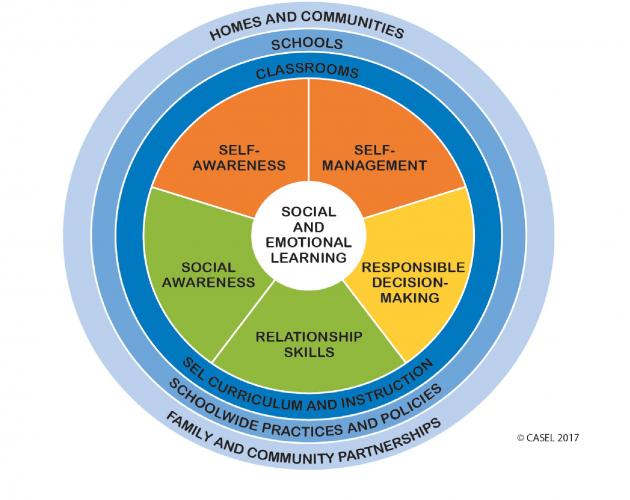Social Emotional Learning (SEL)
Social and emotional learning (SEL) enhances students’ capacity to integrate skills, attitudes, and behaviors to deal effectively and ethically with daily tasks and challenges.
Self-Management = The ability to successfully regulate one’s emotions, thoughts, and behaviors in different situations — effectively managing stress, controlling impulses, and motivating oneself; the ability to set and work toward personal and academic goals.
Social Awareness = The ability to take the perspective of and empathize with others, including those from diverse backgrounds and cultures; the ability to understand social and ethical norms for behavior and to recognize family, school, and community resources and supports.
Relationship Skills = The ability to establish and maintain healthy and rewarding relationships with diverse individuals and groups; the ability to communicate clearly, listen well, cooperate with others, resist inappropriate social pressure, negotiate conflict constructively, and seek and offer help when needed.
Responsible Decision-Making = The ability to make constructive choices about personal behavior and social interactions based on ethical standards, safety concerns, and social norms; the realistic evaluation of consequences of various actions, and a consideration of the well-being of oneself and others.





